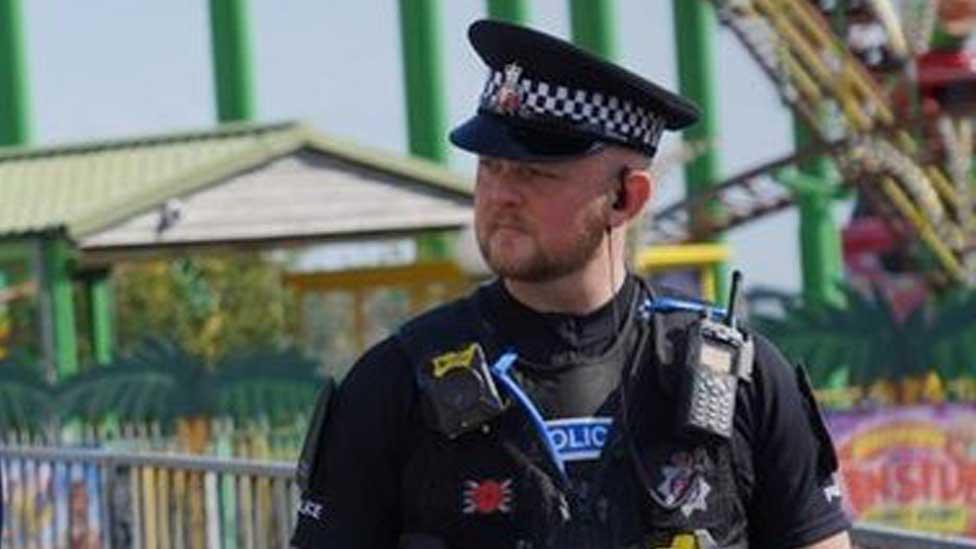Anti-social hotspot scheme has 'amazing results', says Essex PCC
- Published
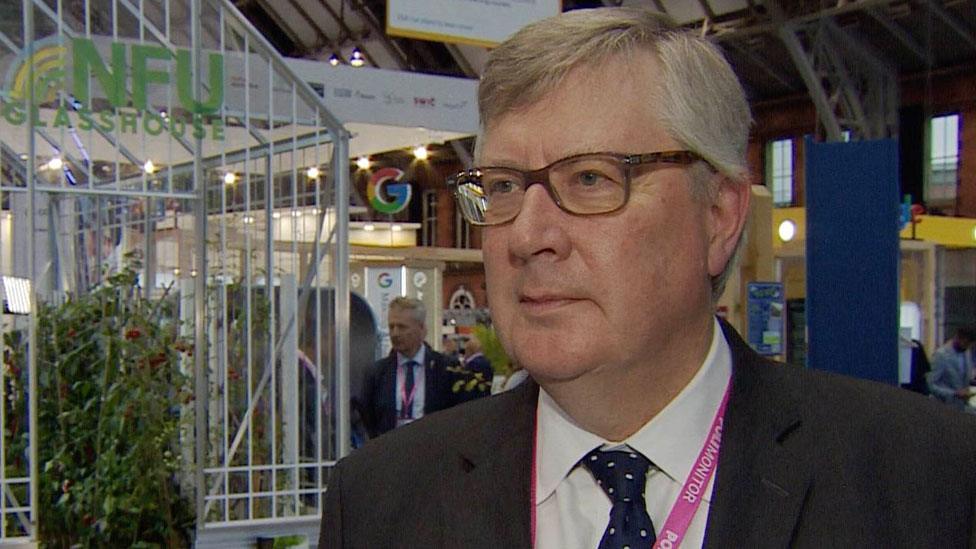
Roger Hirst, the police and crime commissioner for Essex, outlined the scheme at a fringe meeting of the Conservative's Manchester conference
A pilot scheme to tackle anti-social behaviour is already producing some "amazing results", according to a police, fire and crime commissioner.
Roger Hirst told the Conservative Party conference incidents fell by more than 50% this summer in some parts of Essex.
The county was one of 10 awarded government money to fund extra patrols in "hotspot" areas.
Mr Hirst said 800 hours of additional patrols by police and council officers were taking place every week.
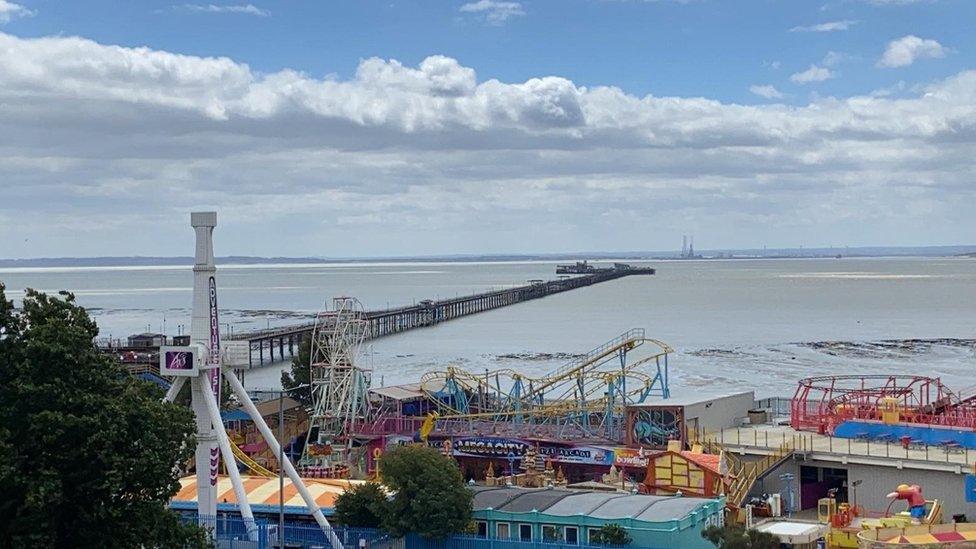
Two areas of Southend were among 11 "hotspots" across Essex which received the extra patrols
In March, Rishi Sunak used a visit to Chelmsford to announce the county would receive £1.1m to tackle anti-social behaviour.
Mr Hirst used the money for specially-trained council staff and police officers to patrol known problem areas.
He identified 11 "hotspots" in Basildon, Brentwood, Chelmsford, Epping, Harlow, Clacton, Thurrock, plus two hot spots in Colchester and another two in Southend.
"The key to success is about having visible patrols at the right time, mixing with the public and knowing the times when the trains carrying trouble-makers from London are arriving," said Mr Hirst.
"Most bad behaviour, particularly graffiti and petty damage, is opportunistic and if you're there to stop them doing it they go away."

Essex Police crime statistics August 2022 to August 2023
Crime overall was down 6.1% from167,556 to 157,343
Anti-social behaviour overall was down 37.7% from 25,319 to 16,283
All crime in Southend was down 10% from 21,274 to 19,139
Anti-social behaviour in Southend was down 42% from 3,584 to 2,080
Source: Essex Police

A fringe meeting at the conference in Manchester was told another similar operation focussed on the Southend seafront between April and the end of August.
It used 40,000 hours of extra patrols, but resulted in a 55% reduction in anti-social behaviour and a 24% reduction in crime in the area, said Mr Hirst.
"It is resource heavy but it is worth it because what we're doing is stopping things happening in the first place," he added.
Mr Hirst hopes the government will keep funding the scheme and roll it out across the country.

Follow East of England news on Facebook, external, Instagram, external and X, external. Got a story? Email eastofenglandnews@bbc.co.uk, external or WhatsApp us on 0800 169 1830
- Published18 July 2023
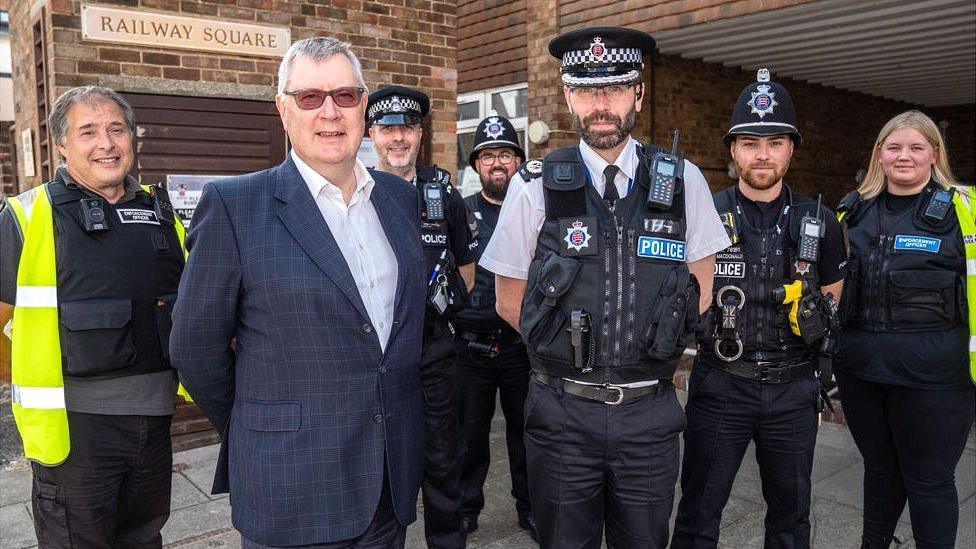
- Published27 March 2023
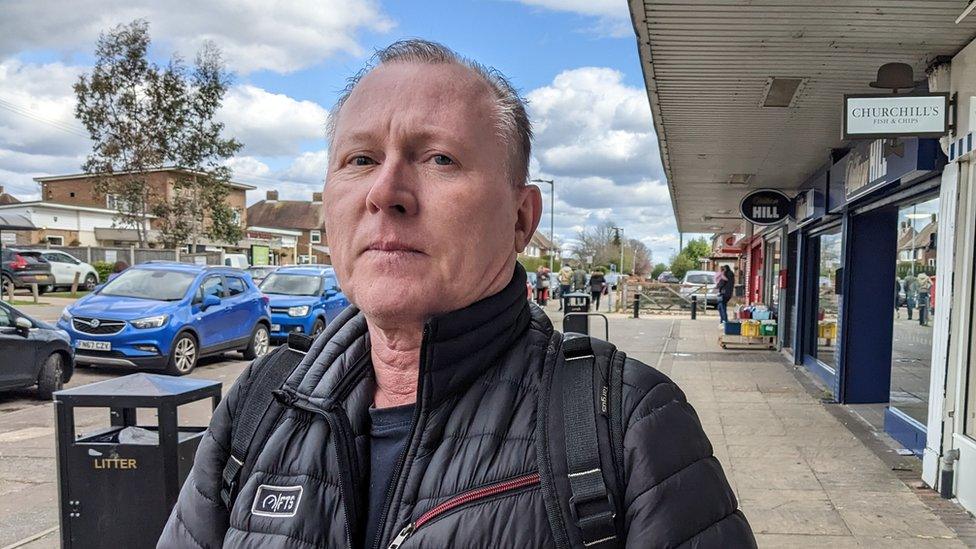
- Published17 September 2021
